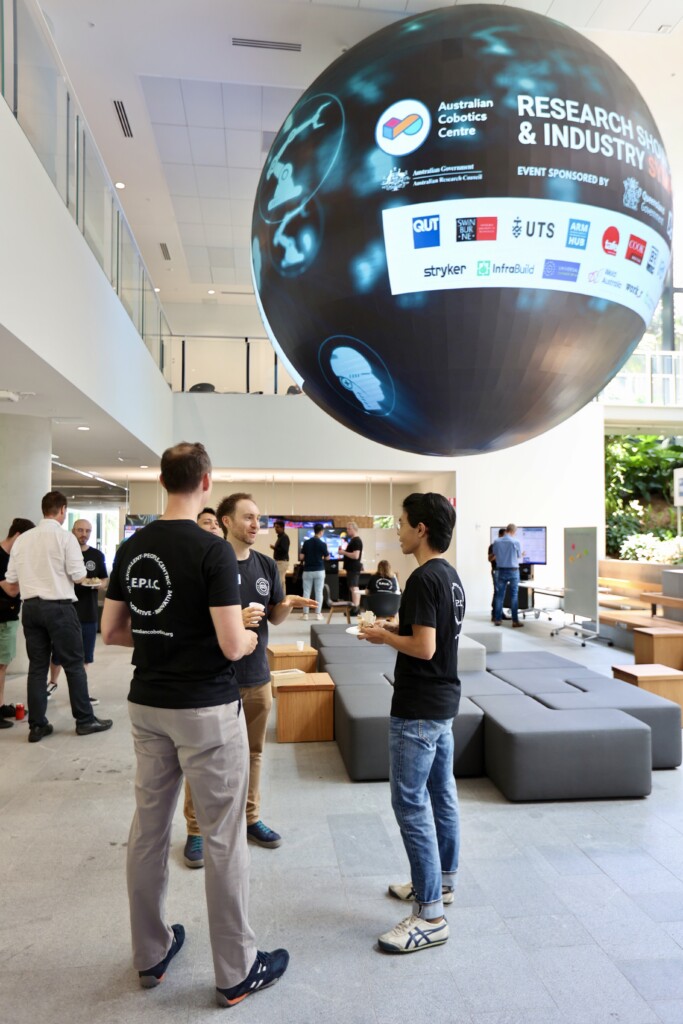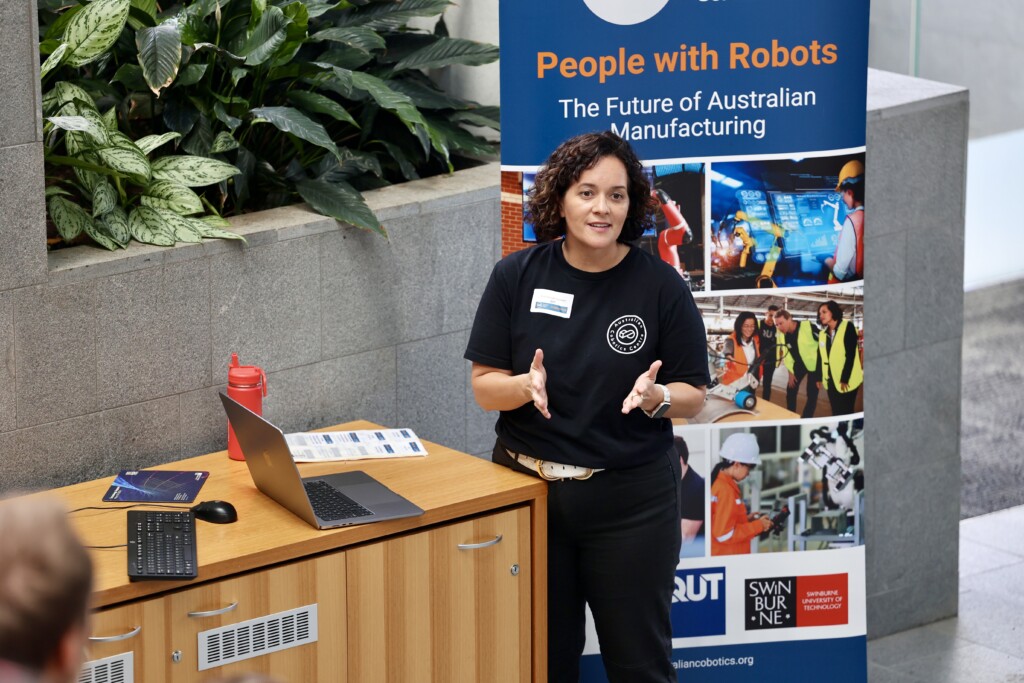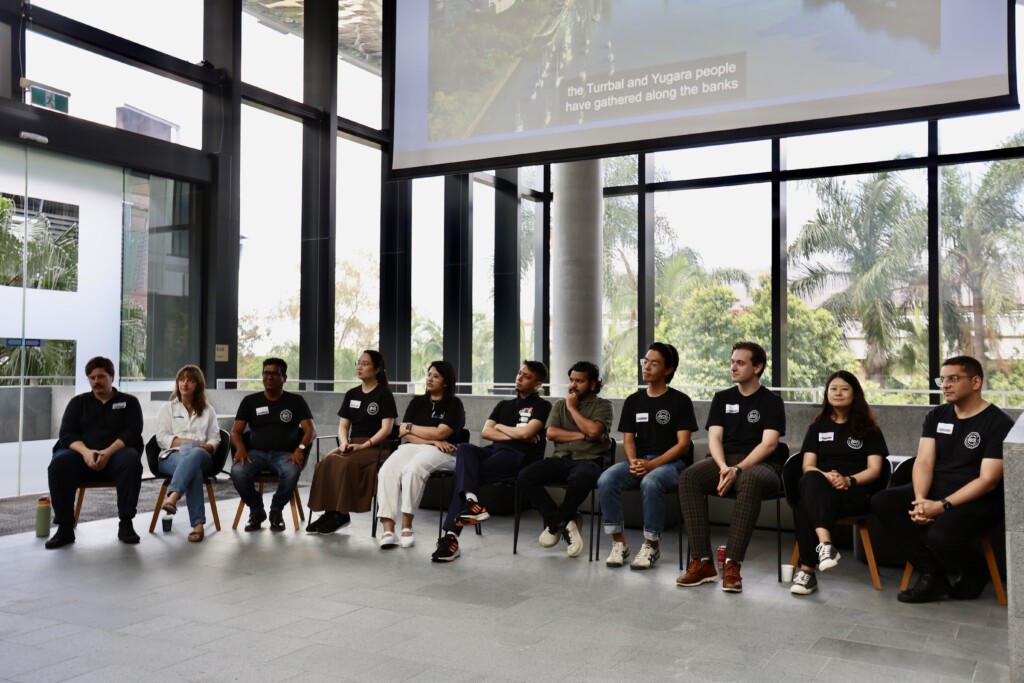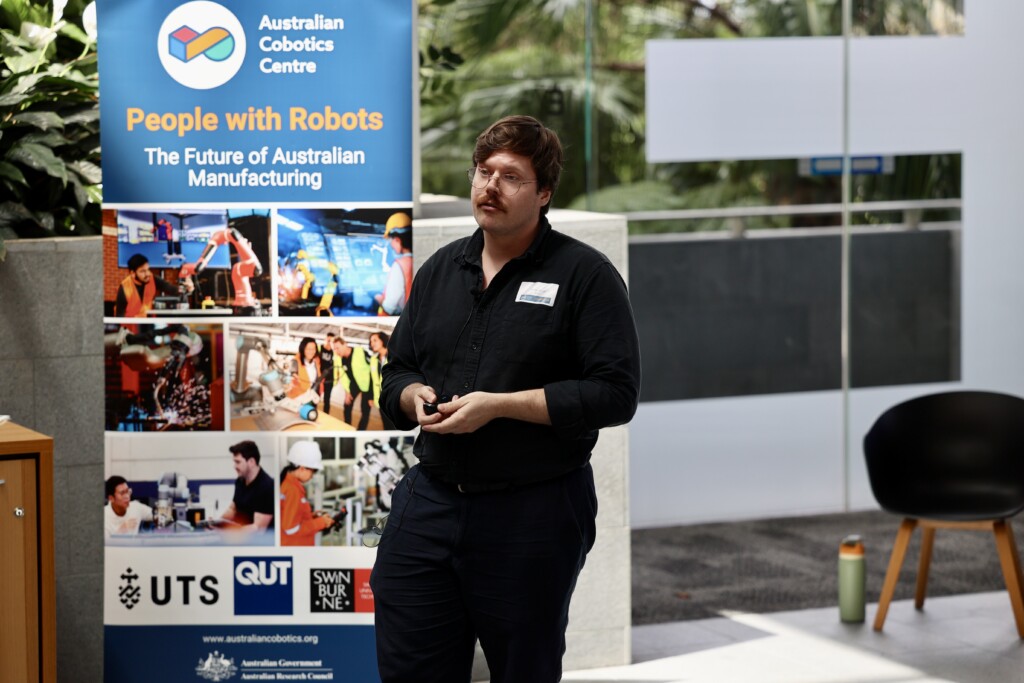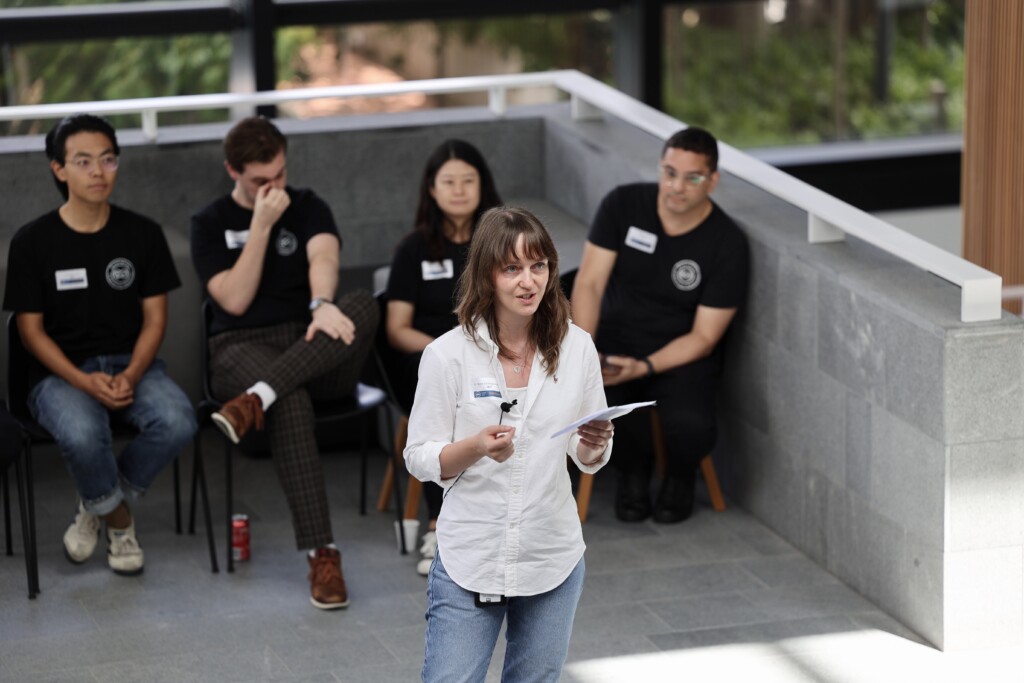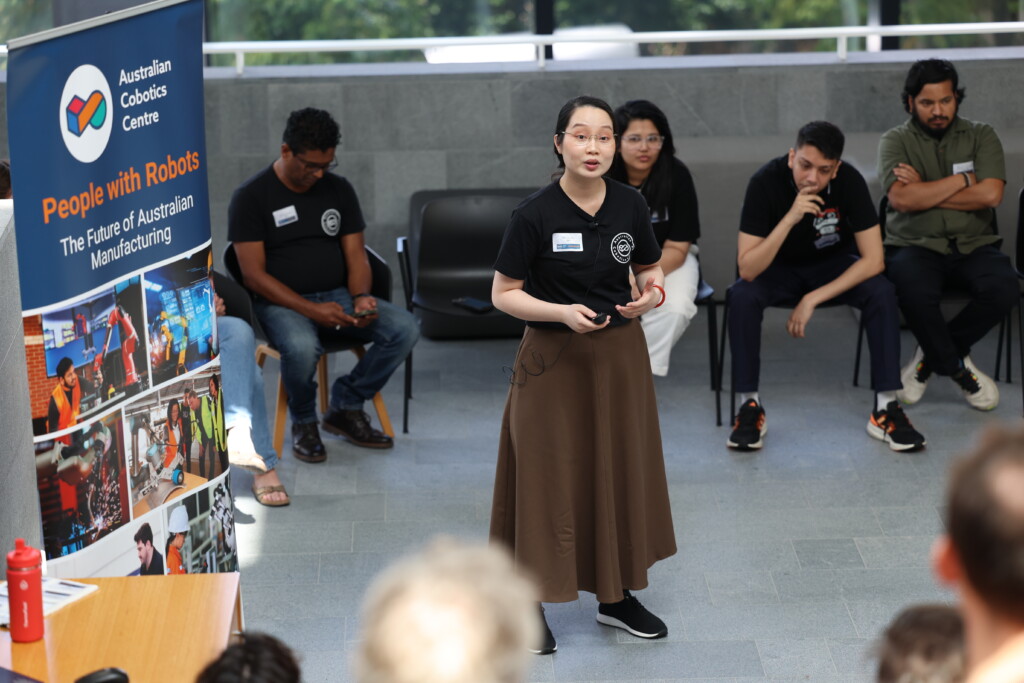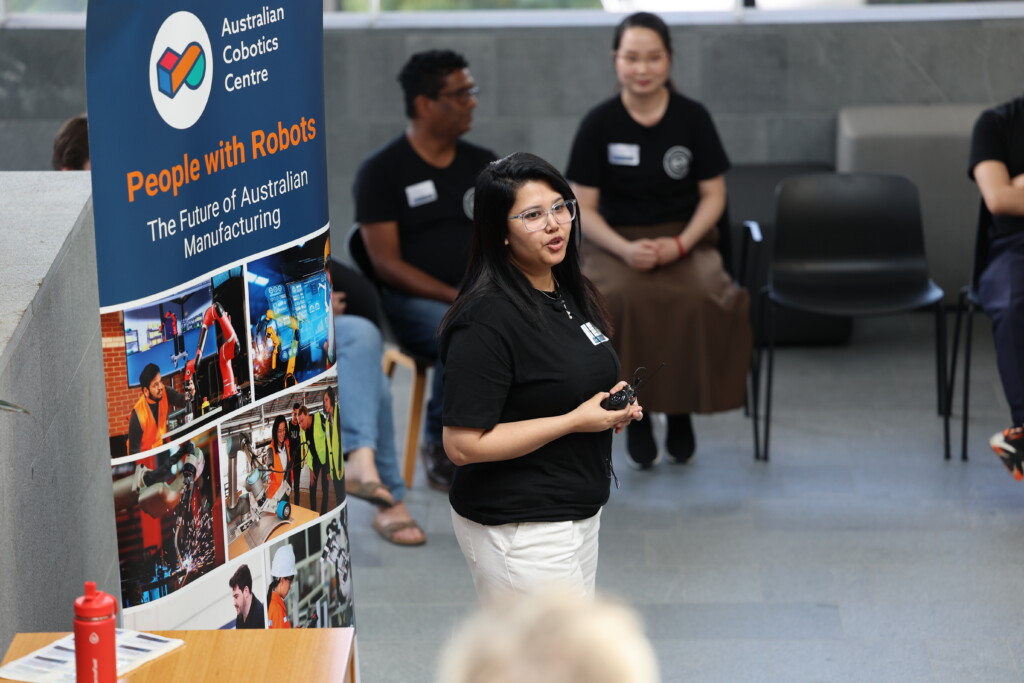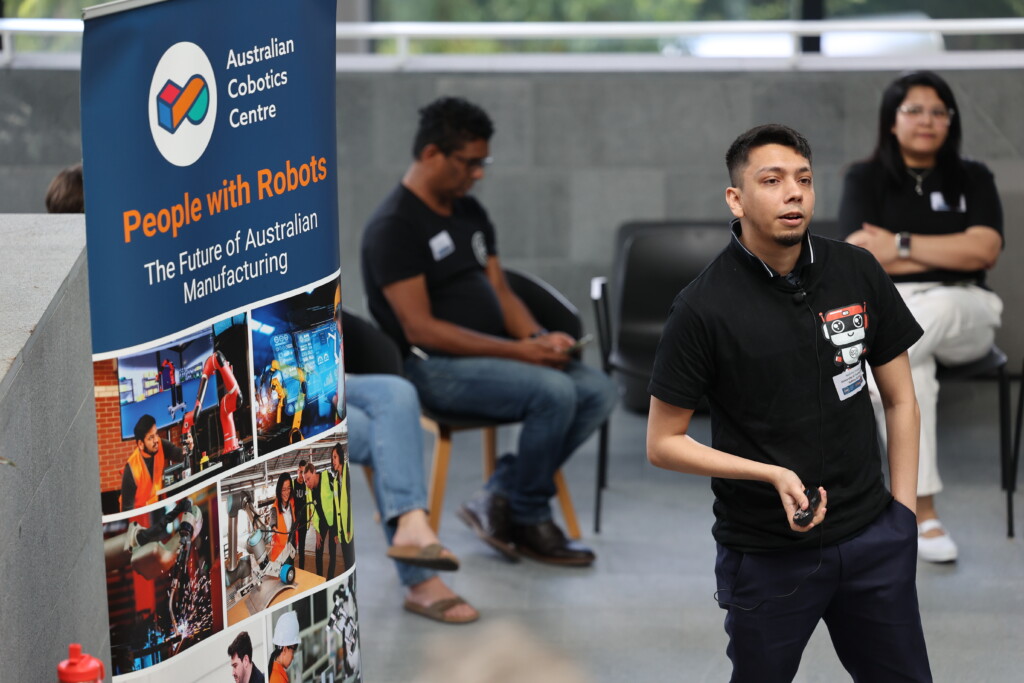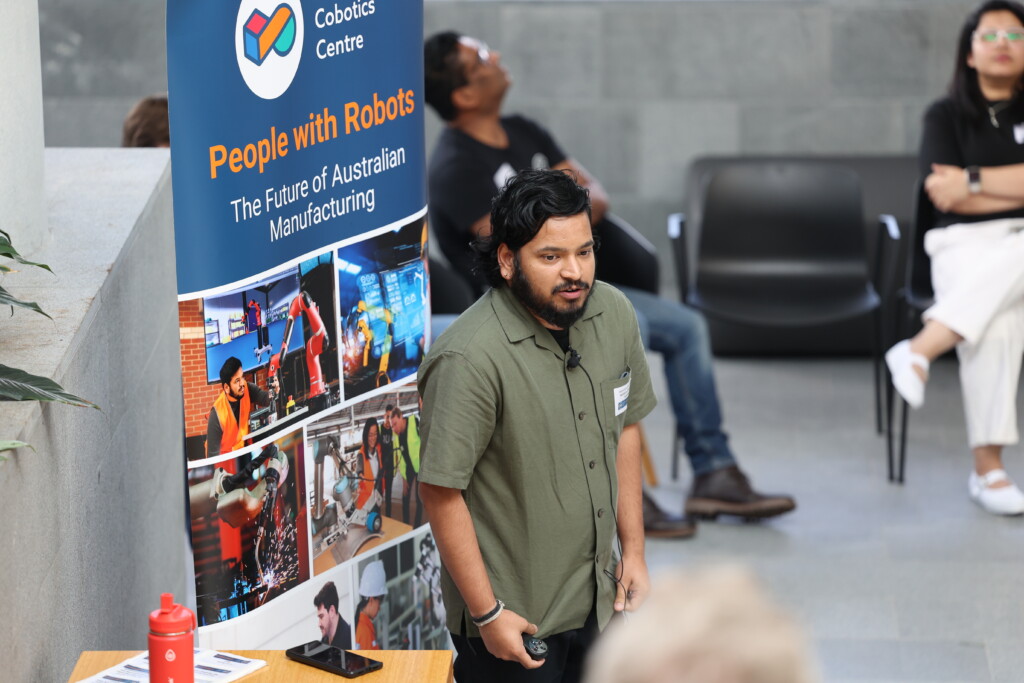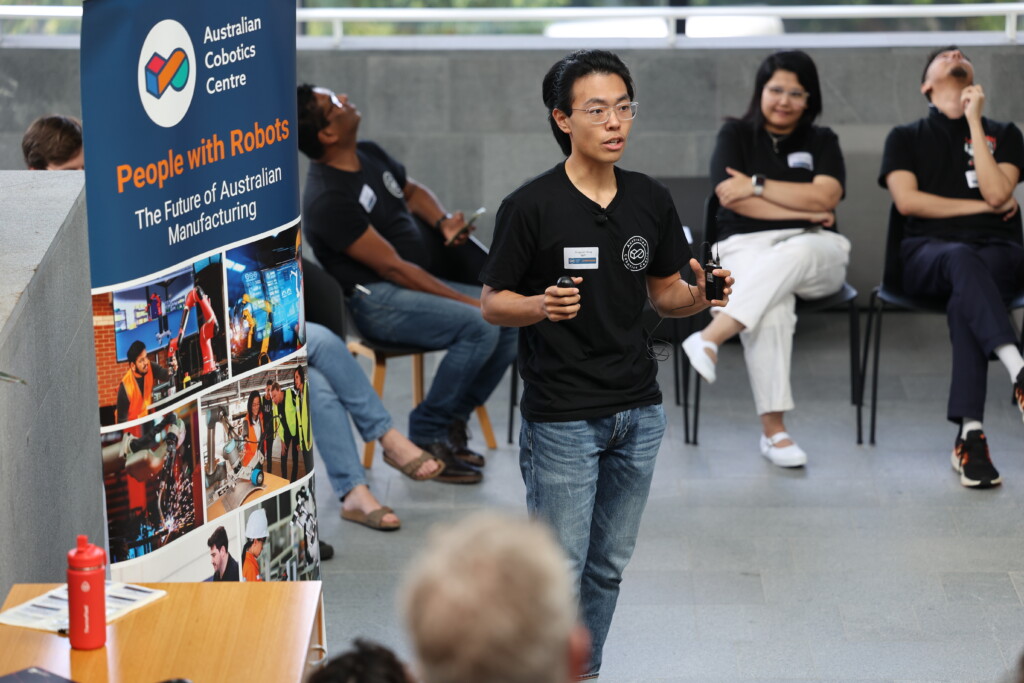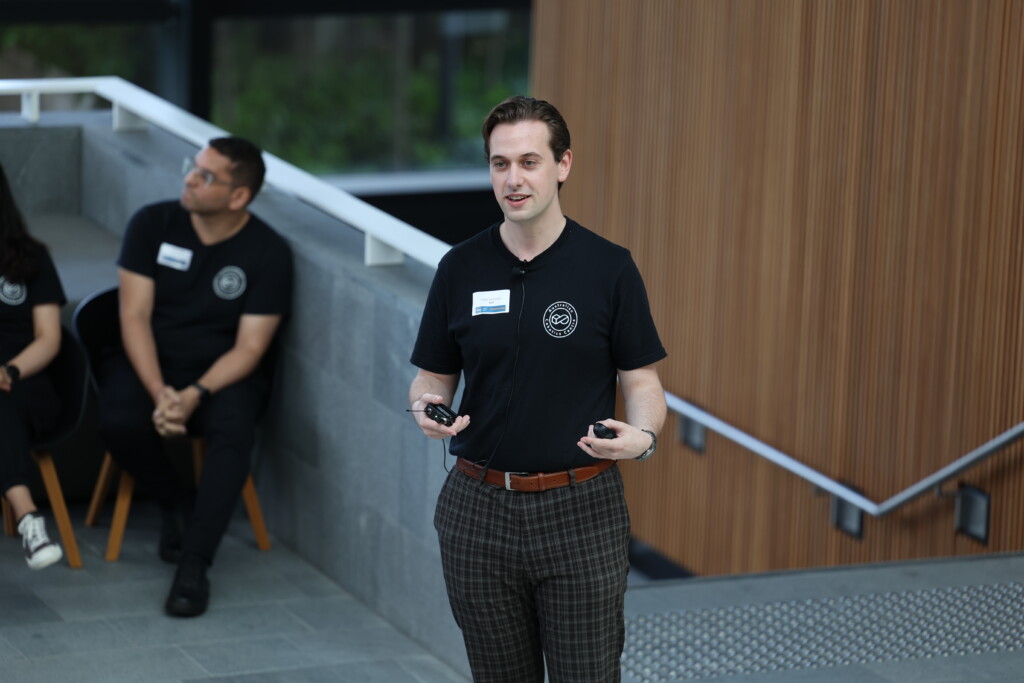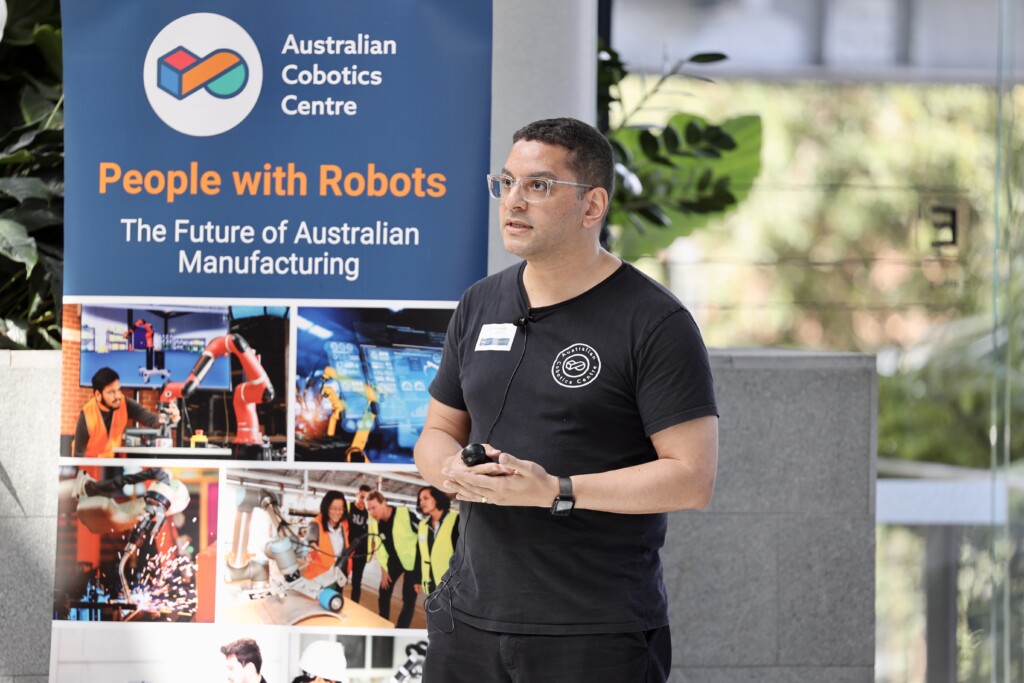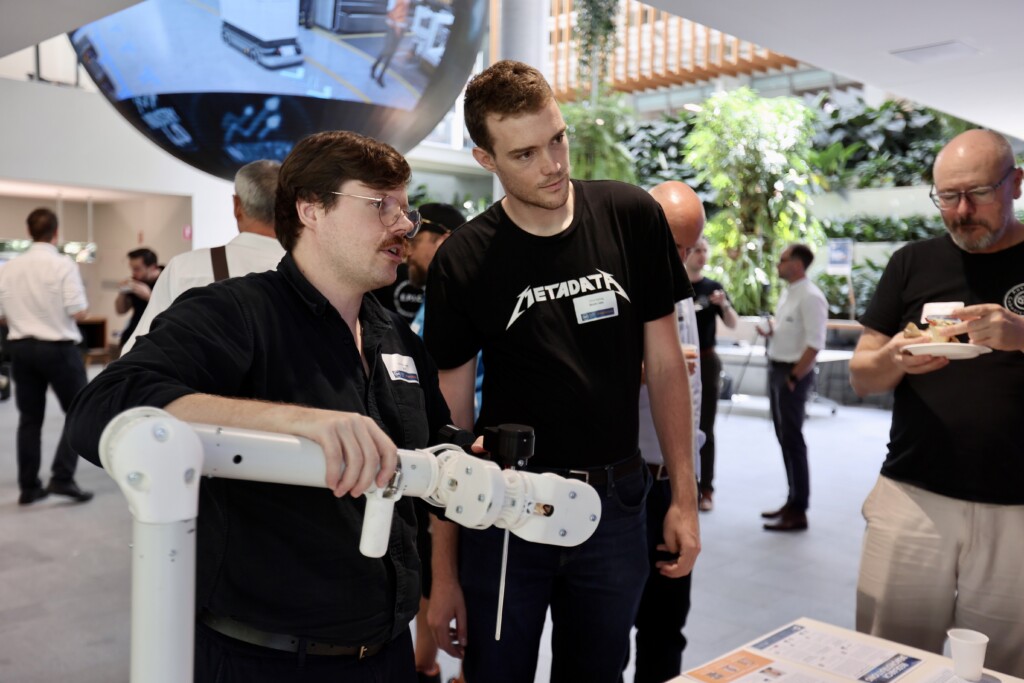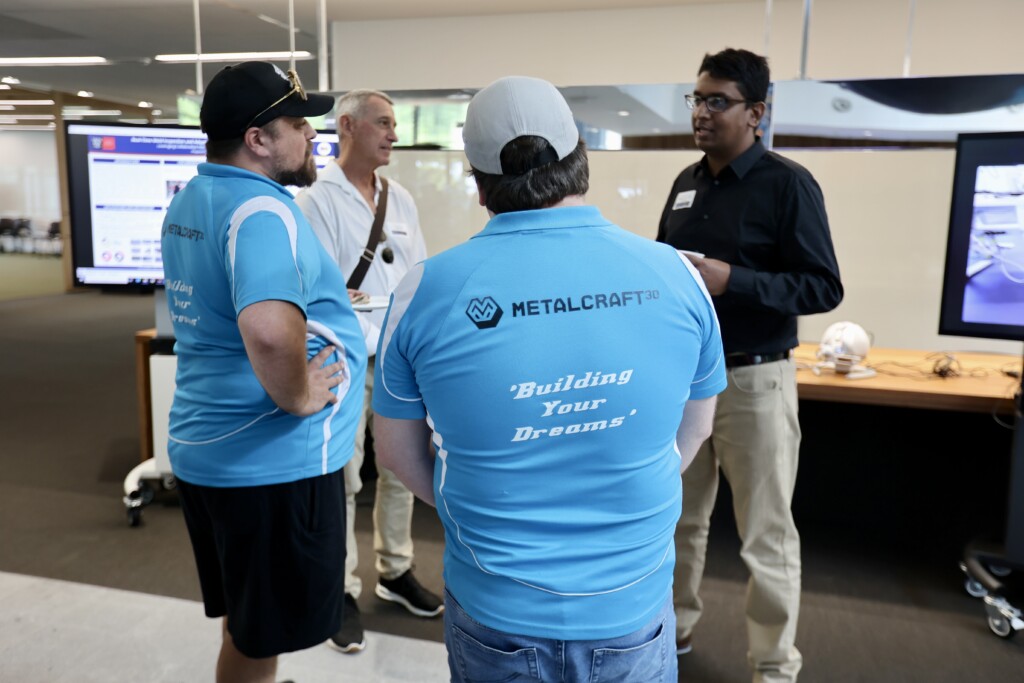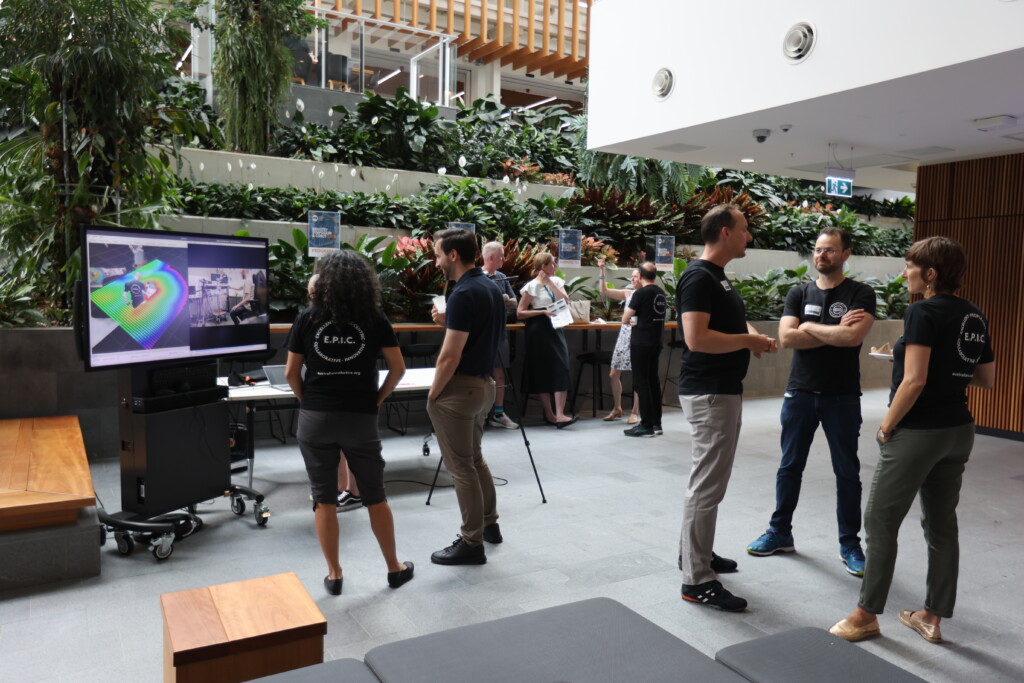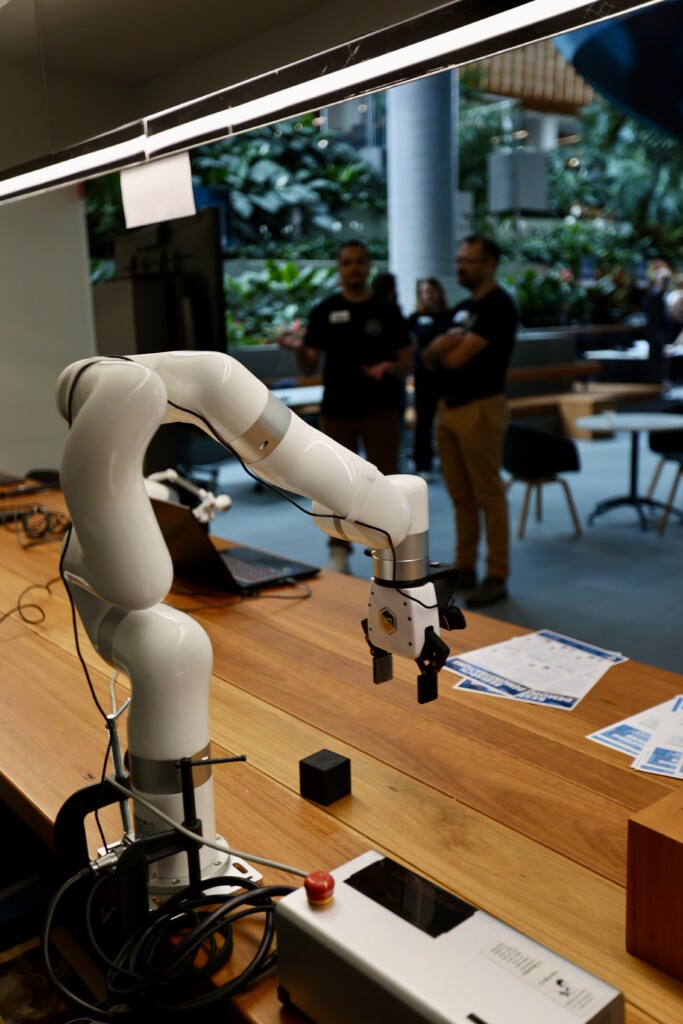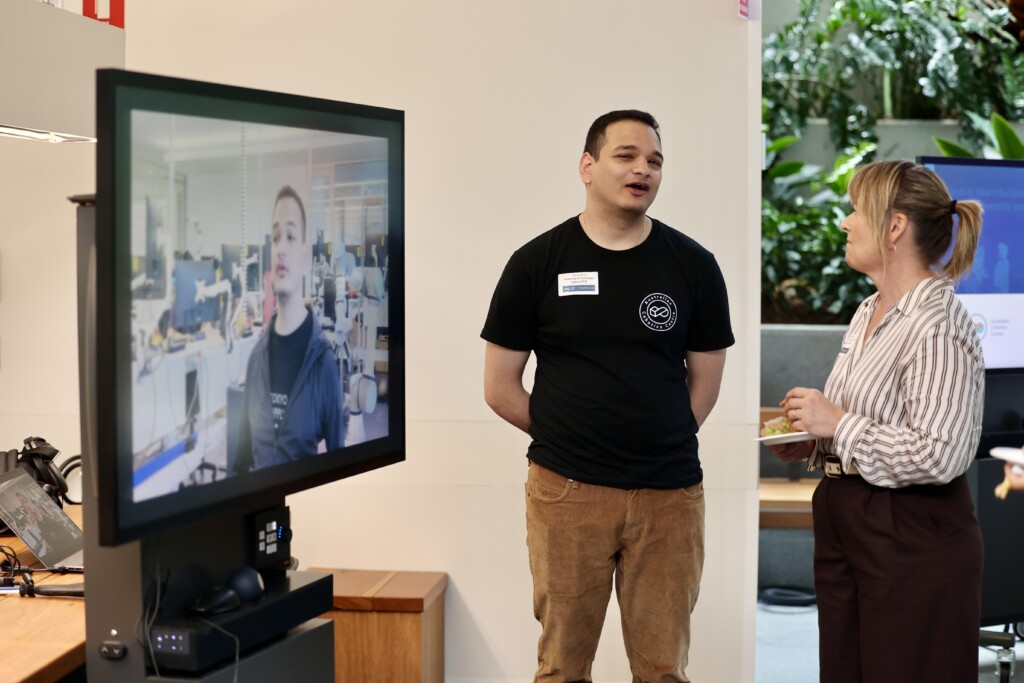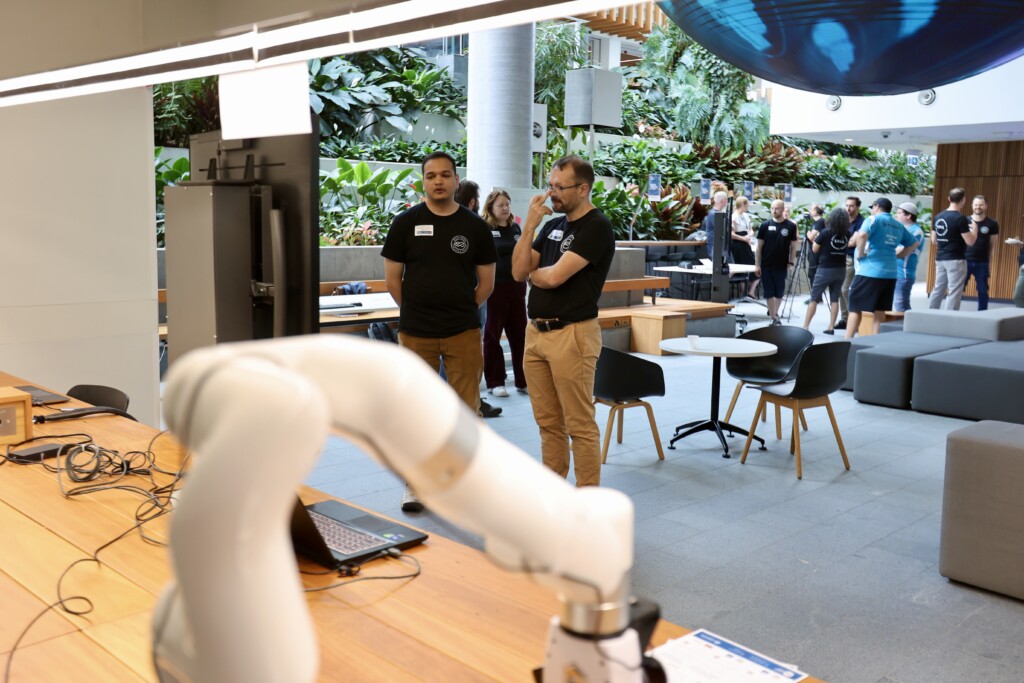POSTED: 06 Dec, 2024
On 5th December 2024, the Australian Cobotics Centre proudly hosted its annual Research Showcase, celebrating the achievements of its researchers over the past 12 months. This year’s event provided an invaluable opportunity for the Centre’s HDR (Higher Degree by Research) students and early career researchers to present their research outcomes in a dynamic and engaging format through lightning talks and research demonstrations.
The showcase was hosted by Professor Glenda Caldwell, Associate Director of Research Training, who emphasised the importance of professional development and communication skills in research careers. In line with the Centre’s training and development program, researchers delivered three-minute lightning talks—a presentation format that challenged them to distill their research aims, outcomes, and impact into a 3 minute talk suitable for a multidisciplinary audience.
3 minute lightning talks
The showcase featured a diverse range of topics reflecting the Centre’s interdisciplinary focus on collaborative robotics in manufacturing and beyond. The following presentations were delivered:
- James Dwyer – Rethinking Our Approach: Rapid Prototyping, Fast Failures, and Facilitating Interdisciplinary Conversations in Cobotics
- Stine Johansen – Robotic Blended Sonification
- Akash Hettiarachchi – The Impact of Collaborative Robots (Cobots) on a Diversified Manufacturing Workforce
- Phuong Anh Tran – A Research Study on the Design of Human-Cobot Manufacturing Work
- Munia Ahamed – Trust Your Robot: Building Acceptance in Human-Robot Teams
- Nadimul Haque – Framework for Adapting Robot Skills to Novel Tasks
- Jagannatha Pyaraka – Minimal Key-Point Learning for Robot Skill Transfer from Videos
- Zongyuan Zhang – Using a Mobile Robot for Sanding: The Non-Rigid Fixation Problem
- Jasper Vermeulen – How Humans (Still) Play a Pivotal Role in Successful Human-Robot Teams
- Yuan Liu – Human Decision Making in Human-Robot Collaboration (HRC)
- Alan Burden – Optimising Cobot Integration with AR Simulation
Demonstrations
Rapid Robot Prototypes, presented by James Dwyer, PhD researcher, QUT, Human Robot Interaction research program
Human-Robot Collaboration (HRC) has the potential to improve work across various sectors, but it also brings changes to work practices, processes, and ways of thinking. Practical design tools are needed to connect the technical advancements in HRC with the real-world needs and expectations of end-users.
This demonstration introduces the ‘kinematic puppet,’ a novel, cost-effective, modular interface that makes it easy to explore robotic movements and interactions. By physically simulating different scenarios and controlling robot actions manually through “puppeteering”, it enables teams to test HRC concepts without needing specialised robotics skills. This hands-on approach provides actionable insights into the usability, efficiency, and ergonomic suitability of robotic platforms across different HRC scenarios and tasks.
Interactive distance field mapping and planning (IDMP) framework, presented by Dr Fouad Sukkar, Postdoctoral Research Fellow, UTS; Nadimul Haque, PhD researcher, UTS, Biomimic Cobots research program
Human-robot collaborative applications require scene representations that are kept up-to-date and facilitate safe robot motions in dynamic scenes. In this exhibition we showcase an interactive distance field mapping and planning (IDMP) framework that handles dynamic objects and collision avoidance through an efficient Gaussian Process field representation. In terms of mapping, IDMP is able to fuse point cloud data from single and multiple sensors, query the free space at any spatial resolution, and deal with moving objects without semantics. In terms of planning, IDMP allows seamless integration with gradient-based reactive planners facilitating dynamic obstacle avoidance for safe human-robot interactions. Video, code, and datasets are publicly available at https://uts-ri.github.io/IDMP.
Real-Time Collaborative Action Tracking (ReCAT) system, presented by Yuan Liu, PhD Researcher, QUT, Designing Socio-Technical Robotic Systems research program
The Real-Time Collaborative Action Tracking (ReCAT) system demonstrates how human pose, movement, and gestures can be detected and tracked through a camera in real time. Using advanced computer vision techniques, attendees can see firsthand how a webcam captures and interprets behaviour, offering valuable insights to support the future of human-centred design in human-robot collaboration.
XR Application for Cobot Interaction and Workflow Optimisation, presented by Dr Alan Burden, Postdoctoral Research Fellow, QUT, Designing Socio-Technical Robotic Systems research program
The demo showcases an Augmented Reality (AR) interface using a Meta Quest headset and Unreal Engine 5. The AR system employs simple visual and interactive elements to send commands to a cobot, enabling it to perform tasks like picking and placing items with precision. The AR interface highlights the 3D environment, giving users a clear, intuitive understanding of how cobots can be effectively integrated into real-world spaces.
Quality Assurance & Compliance using haptic feedback, presented by Dr Mariadas Roshan, Postdoctoral Research Fellow, Swinburne & Danial Rizvi, PhD researcher, UTS, Quality Assurance & Compliance research program
Demonstrations include a video showcasing the use of the Spot Dog as an assistant, another video illustrating how live feedback can be utilized to optimize robotic welding processes, and a live demonstration of a haptic device designed for inspections in manufacturing parts with restricted access. Gain insights into practical applications of robotics and emerging technologies aimed at improving efficiency and quality assessment in industrial environments.
The 2024 Research Showcase not only celebrated achievements but also reinforced the Centre’s commitment to supporting the professional growth of its researchers. By focusing on communication, engagement, and collaboration, the Centre is equipping its students and early career researchers with the tools they need to drive innovation in cobotics and advanced manufacturing.
We congratulate all presenters on their contributions and look forward to seeing their continued impact in the coming year.
Recent News
Meet our E.P.I.C. Researcher, Zongyuan Zhang
Zongyuan Zhang is a PhD Researcher in the Biomimic Program and is currently researching the following problem: how to use robots with a non-rigidly ...
Exploring the Realities of Cobot Adoption in Manufacturing
We’re proud to celebrate the latest publication from our research team in Futures, a leading journal by Science Direct. Congratulations to PhD resea ...
Australian Cobotics Centre Researchers Present at AOA QORF 2025 Meeting
Last week, researchers from the Australian Cobotics Centre were proud to present their work at the Australian Orthopaedic Association (AOA) Queensland ...
